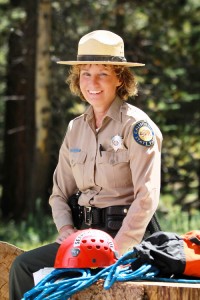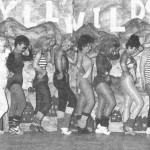Many times when the Riverside Mountain Rescue Unit (RMRU) gets called out, it is in conjunction with the California State Park for a situation that has taken place in its area.
Over the past year, we have seen a steady decline in rescues within the state park. A new program, which Ranger Sue Neary started, is the principle reason for this reduction in rescues.
I had a chance to sit down and talk with Neary at the Long Valley Station off the Palm Springs Tram and discuss her new Preventive Search and Rescue program (PSAR).
Sue, what is PSAR and how did it start?
On Jan. 1, 2010, I started on the mountain. During that first season, I immediately recognized that for all of the medical events and rescues that we responded to, we were not taking any preventive measures to reduce these numbers.

PSAR is a California State Park volunteer program committed to the health and safety of all visitors to Mt. San Jacinto State Park and Wilderness. PSAR volunteers are dedicated to providing protective measures through education and stewardship programs in order to enhance a visitors experience and connection to the natural world.
How is it an educational program?
PSAR is an educational program designed to improve the experience of new visitors and hikers to Long Valley and the State Wilderness. The goal is to reduce the number of medicals and SAR events by helping new hikers become more aware of how they can be better prepared and more self-reliant. The knowledge will not only benefit their hiking experiences, but will benefit those of their family and friends.
PSAR is the expression of a value system as well. Many of our visitors, both returning and new, are goal driven to reach the peak in record-breaking speed, but have developed little appreciation for the value of knowing nature’s signs, much less the signs of their own health and well-being. Developing a keen sense of awareness regarding your surroundings and environmental conditions are key points for a successful hike that often get overlooked.
You mention PSAR is a State Park volunteer program, how does one become part of this program?
Yes, PSAR is currently made up of volunteers. The only requirements are that they have excellent customer skills, are professional in their demeanor and have a desire to educate visitors on safety and preparation while hiking in the wilderness.
PSAR volunteers are trained in the 10 essential systems — daily weather and trail conditions, what to do when there is lightening, proper hydration, trail recommendations and park rules. They can also answer questions about snakes and wildlife concerns that are often addressed by visitors.
PSAR volunteers can only offer recommendations, but they have received a very positive response from our visitors. Many of our PSAR volunteers offer water to hikers who aren’t prepared for the conditions, and some even provide safety whistles or energy bars for the weary hiker.
After talking with Sue, I have come to understand that PSAR is meant to be both positive and educational with the underlying goal that every visitor will have the most rewarding experience possible while visiting Mt. San Jacinto State Park and Wilderness, plus a great volunteer program for those who would like to be involved in a search and rescue team, but do not have the time or commitment that is required to be an RMRU member.










